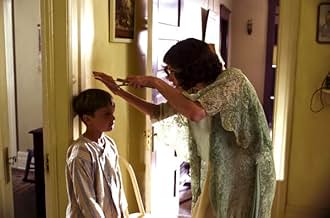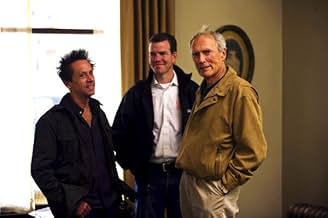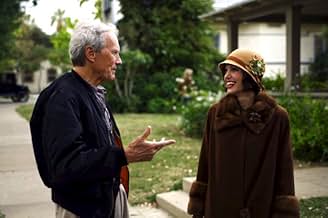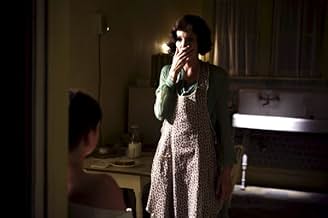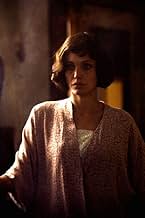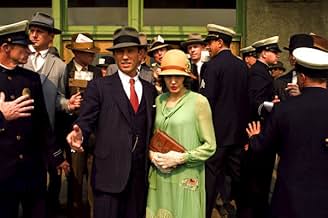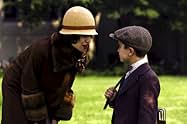Une mère en deuil s'en prend à la police de Los Angeles à son propre détriment lorsqu'elle tente de faire passer un imposteur évident pour son enfant disparu.Une mère en deuil s'en prend à la police de Los Angeles à son propre détriment lorsqu'elle tente de faire passer un imposteur évident pour son enfant disparu.Une mère en deuil s'en prend à la police de Los Angeles à son propre détriment lorsqu'elle tente de faire passer un imposteur évident pour son enfant disparu.
- Nommé pour 3 Oscars
- 14 victoires et 55 nominations au total
Histoire
Le saviez-vous
- AnecdotesScreenwriter J. Michael Straczynski first learned of the story of Christine Collins from an unnamed source at Los Angeles City Hall. The source had stumbled across case files regarding the Wineville Chicken Coop Murders among other discarded documents scheduled for destruction. Straczynski took the files and became obsessed with the case, doing extensive research over the course of a year. He tried to make it into a television project, but never found a solid way to do that. Virtually every event depicted in this movie appears as cited in legal documents, with dialogue often taken verbatim from court transcripts. Straczynski wrote his first draft of the screenplay in only 11 days.
- GaffesDetective Ybarra uses the term "serial killer," coined by FBI Special Agent Robert K. Ressler in the 1970s.
- Citations
[last lines]
Christine Collins: Three boys made a run for it that night, Detective, and if one got out, then maybe either or both of the other two did too. Maybe Walter's out there having the same fears that he did. Afraid to come home and identify himself, or afraid to get in trouble. But either way, it gives me something I didn't have before today.
Detective Lester Ybarra: What's that?
Christine Collins: Hope.
- Crédits fousThe black-and-white Universal logo used in the 1940s opens the film.
- ConnexionsFeatured in Los 10 magníficos: Clint Eastwood (2008)
From the moment the young boy steps off the train, Christine insists to everyone that he is not her son. Unfortunately, the police say she is delusional and just upset. The films leads to the truth of the matter, which is that the corruption in the department has led to them being lackadaisical in their duties. The story moves along fluidly, yet we are never really told the reason that corruption resides.
Nevertheless, the film is quite an experience. It looks terrific and really feels like the 1920s in Los Angeles. Angelina Jolie is solid as Christine, yet I felt she seemed more whiny at times than desperate. It just didn't move me as strongly as Hilary Swank in Million Dollar Baby. The supporting cast is good as well, especially John Malkovich as the pastor eager to help Christine in the fight against the LAPD. What I really wanted was that emotional pull that Eastwood's other films had. This one seemed a bit cold and ruthless, despite that being its subject material. So, I would say to go and see it; it is definitely worth the 140 minutes. As for Oscar time, I can't say for sure that it will wrap up the big ones such as Best Picture, Director or Actress. It wasn't the strongest campaign I've seen, but then again this has been a weaker year than 2007.
Meilleurs choix
Détails
- Date de sortie
- Pays d’origine
- Langue
- Aussi connu sous le nom de
- The Exchange
- Lieux de tournage
- Sociétés de production
- Voir plus de crédits d'entreprise sur IMDbPro
Box-office
- Budget
- 55 000 000 $US (estimé)
- Montant brut aux États-Unis et au Canada
- 35 739 802 $US
- Week-end de sortie aux États-Unis et au Canada
- 489 015 $US
- 26 oct. 2008
- Montant brut mondial
- 113 398 237 $US
- Durée2 heures 21 minutes
- Couleur
- Mixage
- Rapport de forme
- 2.39 : 1







